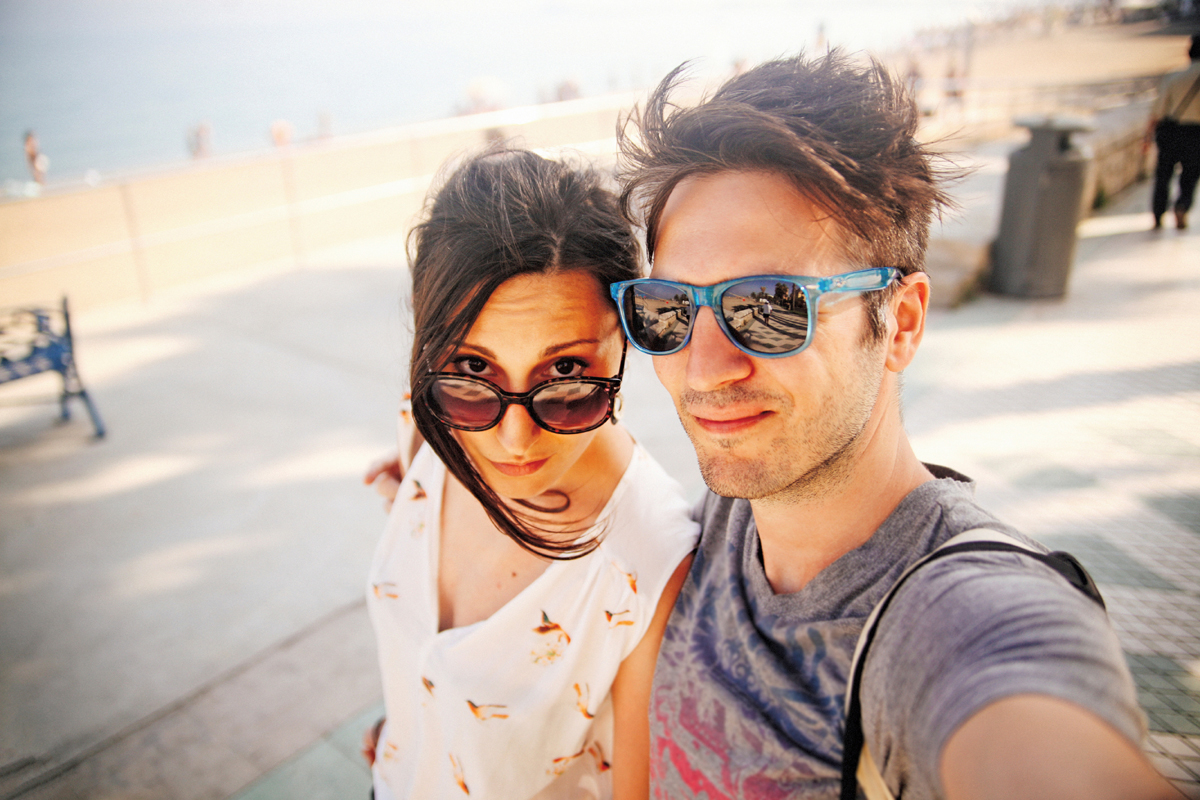The Effect of Point of View in Narrative
Just as perspective matters in real life—
As you likely remember from Chapter 2, writers tend to choose from the following points of view:
First Person Narration: uses “I,” and is a character in the story (often, but not always the protagonist).
Third Person Narration: uses “he,” “she,” “they,” and so on, and is not a character within the story. There are a few different types of third person narration:
Omniscient narrators are ones who know the thoughts and feelings of every character and can move easily through time.
Limited omniscient narrators are ones who know the thoughts of just one character.
Objective narrators are ones who report actions and dialogue and describe the setting, but do not know the thoughts and feelings of any of the characters.
But more than simply being able to identify the type of narration an author chooses to use, the goal of analyzing a text for its point of view is to consider the effects of that choice. Each point of view creates a unique relationship with the reader based upon what the narrator is able to reveal or not; for instance:
Intimacy: how close or removed does the reader feel to or from the characters and events in the story?
Reliability: to what extent does the reader believe or trust the narrator’s perspective on the events in the story?
Depth and breadth of knowledge: how much or how little information does the reader receive about events and characters in the story?
Treatment of time periods: does the reader learn about the past or future of the characters in the story, or is what he or she learns limited to events in the present?
Multiplicity of viewpoints: does the reader see different perspectives on the events and characters within a story?
ACTIVITY
Look at the following images. The first photo is taken from the visual equivalent of the first person, while the second photo is taken from a third person point of view. What is the effect of each point of view, especially on the audience of the photographs? What do we see or not see? What is lost or gained in the choice of each point of view?


A Model Analysis
Below is an excerpt from I Know Why the Caged Bird Sings by Maya Angelou about her eighth-
We were maids and farmers, handymen and washerwomen, and anything higher that we aspired to was farcical and presumptuous. [. . .]
It was awful to be Negro and have no control over my life. It was brutal to be young and already trained to sit quietly and listen to charges brought against my color with no chance of defense. We should all be dead. I thought I should like to see us all dead, one on top of the other. A pyramid of flesh with the whitefolks on the bottom, as the broad base, then the Indians with their silly tomahawks and teepees and wigwams and treaties, the Negroes with their mops and recipes and cotton sacks and spirituals sticking out of their mouths. The Dutch children should all stumble in their wooden shoes and break their necks. The French should choke to death on the Louisiana Purchase (1803) while silkworms ate all the Chinese with their stupid pigtails. As a species, we were an abomination. All of us. (pars. 40–
In this case, the first person narration allows Angelou to paint a very intimate portrait of her pain. A third person point of view could never capture her absolute frustration when she says that she has “no control over [her] life” or that she has been “trained to sit quietly.” Those words belong to the narrator directly, and describe her own anger. Through this intimate first person perspective, we too feel her anger. Angelou’s narrator then takes the audience deep into her own tortured imagination, picturing a “pyramid of flesh.” The reader is likely to be horrified at her fantasy here, but it gives us a picture of the lasting effects of racism.
ACTIVITY
Look at this excerpt from George Orwell’s “Shooting an Elephant.” Refer to the list of effects on page 235 and identify which Orwell creates through his choice of a first person point of view. Consider especially Orwell’s level of intimacy and relationship with the reader.
As for the job I was doing, I hated it more bitterly than I can perhaps make clear. In a job like that you see the dirty work of Empire at close quarters. The wretched prisoners huddling in the stinking cages of the lock-
ups, the grey, cowed faces of the long- term convicts, the scarred buttocks of the men who had been flogged with bamboos — all these oppressed me with an intolerable sense of guilt. But I could get nothing into perspective. I was young and ill- educated and I had had to think out my problems in the utter silence that is imposed on every Englishman in the East. I did not even know that the British Empire is dying, still less did I know that it is a great deal better than the younger empires that are going to supplant it. All I knew was that I was stuck between my hatred of the empire I served and my rage against the evil- spirited little beasts who tried to make my job impossible. (par. 2) Page 237Read this excerpt from “Shooting an Elephant,” by George Orwell, in which the narrator describes being a young British police officer stationed in Burma in the 1930s. Like the authors of most personal narratives, Orwell uses the first person point of view. Using the list of on page 235, as a reference, consider the effects Orwell’s choice of narration creates, especially in terms of his reliability and the viewpoint the reader receives.
As a police officer I was an obvious target and was baited whenever it seemed safe to do so. When a nimble Burman tripped me up on the football field and the referee (another Burman) looked the other way, the crowd yelled with hideous laughter. This happened more than once. In the end the sneering yellow faces of young men that met me everywhere, the insults hooted after me when I was at a safe distance, got badly on my nerves. The young Buddhist priests were the worst of all. There were several thousands of them in the town and none of them seemed to have anything to do except stand on street corners and jeer at Europeans. (par. 1)
Now read the following version of the passage, which has been written from a third person limited point of view. Using the list of possible effects mentioned above, what is the effect of this change in point of view?
As for the job he was doing, he hated it more bitterly than he can perhaps make clear. In a job like that you see the dirty work of Empire at close quarters. The wretched prisoners huddling in the stinking cages of the lock-
ups, the grey, cowed faces of the long- term convicts, the scarred buttocks of the men who had been flogged with bamboos — all these oppressed him with an intolerable sense of guilt. But he could get nothing into perspective. He was young and ill- educated and he had had to think out his problems in the utter silence that is imposed on every Englishman in the East. He did not even know that the British Empire is dying, still less did he know that it is a great deal better than the younger empires that are going to supplant it. All he knew was that he was stuck between his hatred of the empire he served and his rage against the evil- spirited little beasts who tried to make his job impossible.